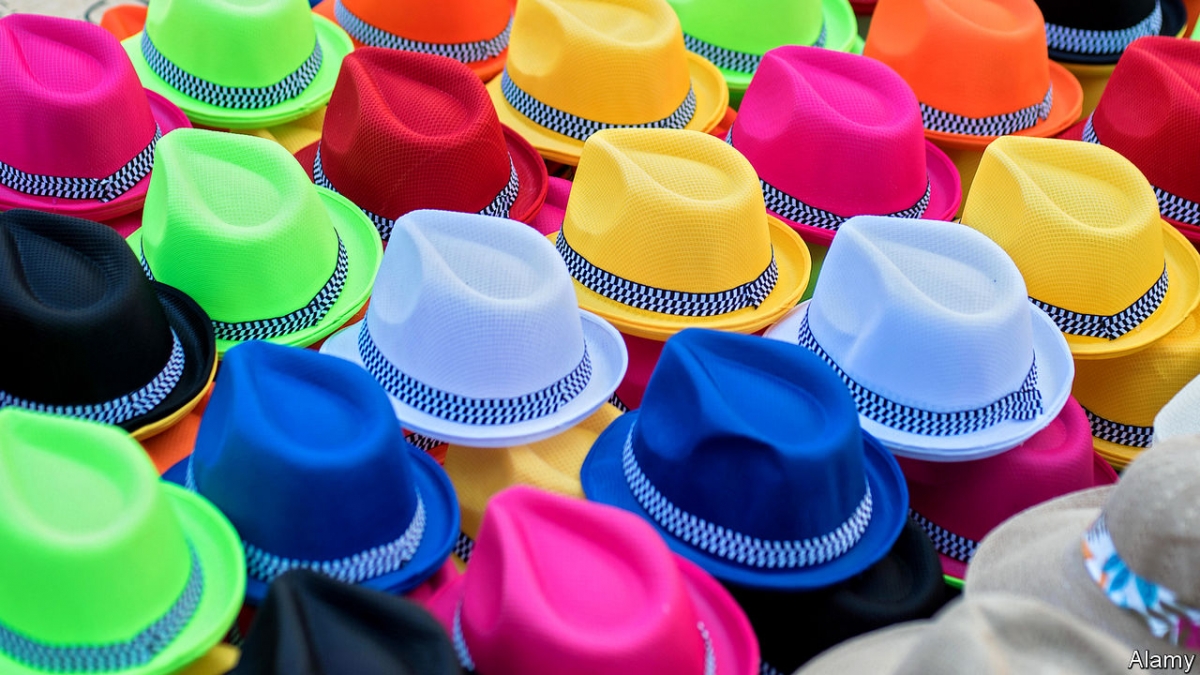PANAMA IS AMONG the luckier countries in Latin America. Drug-traffickers mostly bypass the isthmus, preferring to ship cocaine to the United States through northerly neighbours. A forest protected the country from Colombia’s long-running insurgencies. Its canal provided $1.7bn to the treasury last year, an eighth of the government’s budget. Panama’s citizens are the second-richest in Latin America. Thanks partly to the canal, its economy is the fastest-growing. The social safety-net is generous by regional standards and life expectancy matches that in the United States.
These boons do not exempt Panama from problems that bedevil many Latin American countries. Three dozen families control the economy. Politics and business are prone to corruption. Odebrecht, a Brazilian construction firm that bribed politicians across Latin America, paid $100m to suborn Panamanian officials. The “Panama papers”, leaked in 2016, revealed that some of the firms housed in Panama City’s gleaming office blocks are dedicated to helping people across the globe launder money and dodge taxes. Panama’s schools perform poorly in international rankings. It is among the most unequal countries in Latin America, against stiff competition.
The presidential and congressional elections scheduled for May 5th are unlikely to produce radical change. That is not because voters are satisfied. At every opportunity since the return of democracy in 1989 they have chosen a president from a party different from that of the incumbent. They are likely to do it again this time. The approval rating of Juan Carlos Varela, the president, is a dismal 12%. The presidential candidate of his Panameñista Party has little chance (Mr Varela cannot compete).
Yet his successor is unlikely to be much different. The half-dozen leading contenders for the presidency espouse the same sort of centre-right policies that Mr Varela does. The sole left-winger is expected to win 1% of the vote. In part that may be because Panama’s role as a gateway of global commerce makes obvious the benefits of business. Panama is thus reassuringly different from Latin American countries such as Mexico and Brazil, where angry voters recently turned to radical populists.
The problem is that Panamanians have little political choice. In presidential debates the candidates agreed on tweaks to pro-market policies. There is little argument about the direction Panama should take, says Roberto Troncoso, a lawyer. It needs big changes. The next president will have to prove that those can happen without a change in the political consensus.
The current front-runner is Laurentino Cortizo, the sensible but bland nominee of the Democratic Revolutionary Party. Founded by Omar Torrijos, Panama’s dictator in the 1970s, it has been out of power since 2009. Perhaps for that reason, Mr Cortizo could win nearly half the vote in the one-round election (though polls have been spectacularly wrong before).
He was born to money and ran his family’s farming and construction firms. Education reform is “the star that will light up” his government, he says. He would offer free school meals and improve evaluation.
More colourful candidates are available. Rómulo Roux, whom the polls put a distant second, is the heir of Ricardo Martinelli, a former president who is in prison awaiting trial on charges that he spied on political foes. Despite that, many Panamanians remember the supermarket mogul’s presidency from 2009 to 2014 as a good time. The economy grew by nearly 8% a year and the capital got a new metro (built partly by Odebrecht).
Mr Roux adds populist flavouring to the centrist porridge. He tells voters to keep their receipts for medicines they buy so he can reimburse them when he becomes president. His pitch appeals to Yasmin de León, a government-office cleaner. Sitting with friends by a roadside in Boca de Caja, a seaside slum, she rails against men in corbatitas (little ties) who live in the apartment towers just metres away. She remembers Mr Martinelli’s presidency as “spectacular” and hopes Mr Roux will continue his work. (Mr Martinelli is running from his jail cell to be a congressman and mayor of Panama City.)
Ricardo Lombana, a lawyer who is competing as an independent, is the only leading candidate to criticise the political class. He says that his rivals from established parties cannot cure corruption because “they need to make a pact within the corrupt system to arrive in government”. Polls place him third, but he is rising.
The main candidates have similar ideas for coping with the most urgent problems. These include water scarcity, caused by climate change and leaky pipes, and a public pension fund that could run out of money within a decade. Less acute but just as worrying is the parlous state of Panama’s institutions. Underpaid judges are swayed by bribes or political influence. The national assembly is widely seen as corrupt, in part because lawmakers are allowed to spend money with little oversight.
The most important task of the next president and congress will be to strengthen such institutions. Among the main ideas are shrinking the national assembly from 71 members, introducing congressional term limits and ending unsupervised spending by legislators. Top judges would serve for longer terms and more junior ones would get higher pay. Such changes would require amending the constitution.
One of the few areas of dispute among candidates is how to enact such changes. The front-runners favour submitting amendments to two successive congresses and then seeking approval in a referendum. Others, including Mr Lombana, would rather convene an assembly to rewrite the constitution, which might open the door to risky changes. Institutional change of some sort is needed. Without it, voters may ditch moderation.
